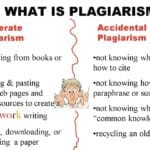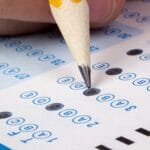David and Goliath [Book Review]
![David and Goliath [Book Review] 1 Available at Audible](https://parentsguide.asia/wp-content/uploads/2024/06/Available-at-Audible.png)
If you read my other recommendation, The Power of Habit, you will be familiar with Malcolm Gladwell's journalistic style. After all, the “Notes” section at the back of this book is probably just as long.
In David and Goliath: Underdogs, Misfits, and the Art of Battling Giants, the author of international bestsellers such as Blink and The Tipping Point demonstrates his storytelling flair by retelling historical events in a way that challenges their conventional interpretations. But you may ask, “What has this book got to do with a website that focuses primarily on education and parenting?”
Apart from the running theme that underdogs have advantages that are not apparent to casual observers, Gladwell highlights several interesting case studies.
Take for instance the case of Caroline Sacks (pseudonym) in chapter 3, which Gladwell used to illustrate the “Big Fish-Little Pond Effect”, the phenomenon of relative deprivation applied to education. The theory, pioneered by the psychologist Herbert Marsh, states that the more elite an educational institution is, the worse students feel about their academic abilities. Hence, students who would be at the top of their class at a good school can easily fall to the bottom of a really good school.
For Sacks, her choice of going to Brown University (an Ivy League school) instead of the University of Maryland, puts her in a one of the deepest and most competitive ponds in the US, which quickly made her feel inferior relative to her immensely brilliant classmates. This, in turn, shattered her confidence and shaped her willingness to tackle challenges and finish difficult tasks. You should read the entire chapter for a more detailed explanation of the phenomenon.
Another chapter worth reading, especially for parents with dyslexic children, is where Gladwell examines the question: “Can dyslexia turn out to be a desirable difficulty?”
Gladwell suggests that it can and cites an extraordinarily high number of successful entrepreneurs who are dyslexic, including Richard Branson, Charles Swab, Craig McCaw, David Neeleman, John Chambers, Paul Orfalea, to name just a few, to support his point.
For his case study, Gladwell followed the trajectory of David Boies, the famous trial lawyer who represented the US Justice Department in the United States v. Microsoft Corp. case and later went on to defend Napster when the company was sued by the Recording Industry Association of America (RIAA).
Believe it or not, Boies is dyslexic and for him to read law seems like a crazy endeavour. But instead of being tripped up by his weakness (i.e. reading disability), Boies chose to focus on his “hidden advantage” and became a superb listener. He had no choice. He was such a terrible reader that he had to scramble and adapt and come up with some kind of strategy that allowed him to keep pace with everyone around him. That is probably the case with most of the successful people who were dyslexic.
The book also includes interesting stories on the treatment of leukemia in children, the American civil rights movement and the violence in Northern Ireland.
Unfortunately, the last chapter reads a bit like a filler, which comes as an anti-climax.
![David and Goliath [Book Review] 3 Checkout Amazon](https://parentsguide.asia/wp-content/uploads/2020/11/Checkout-Amazon.jpg)
Last Updated on 6 September 2024
Proud father of two lovely kids, who at times pushed me to seriously consider editing out the word “lovely” from this sentence. (I am not alone in this.)

![David and Goliath [Book Review] 2 David and Goliath](https://parentsguide.asia/wp-content/uploads/2018/04/david-goliath.jpg)



